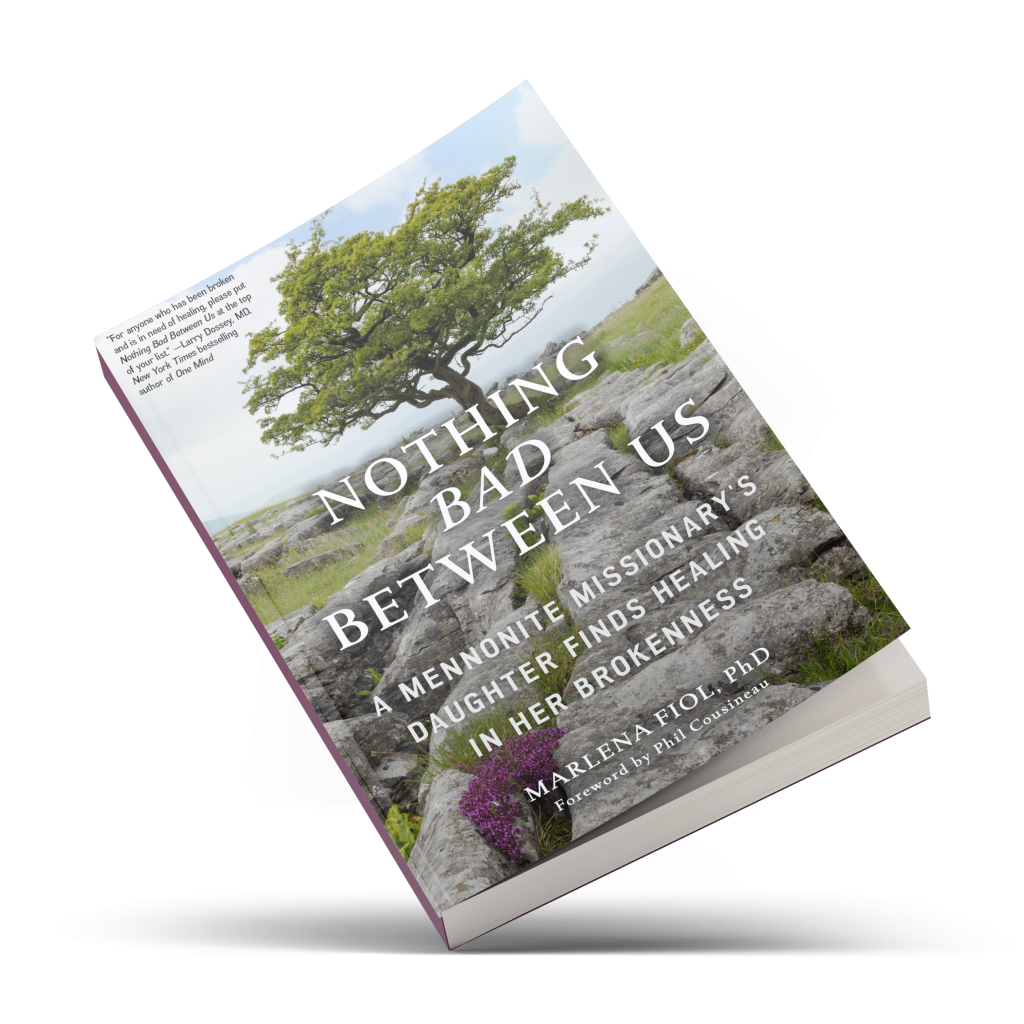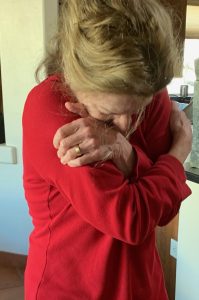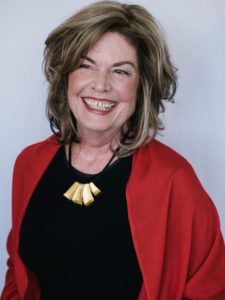Welcome to Our New Series:
Choosing Compassion Over Fear
My own personal journey from a rebellious and tortured childhood to eventual healing and reconciliation depended on gradually learning to choose compassion over fear. You can read about it in my new book Nothing Bad Between Us, which is now available at your favorite bookseller.


Choosing Compassion Over Fear:
I’m Still Afraid of Being Judged
Therapy is supposed to help, right?
Meditation is supposed to help, right?
Being on a spiritual path is supposed to help, right?
Then why am I still so afraid of being judged?
It’s scary to write a memoir that includes my many embarrassing failures as well as my hard-won successes. It’s even scarier to put it out there into the world.
In just the few weeks since my book was released by Mango publishing, I have received many Amazon reviews, Goodreads reviews, and personal notes from readers. Some of them are humbling:
“I just finished reading your book. It is a very compelling story that I did not want to put down- A very honest and courageous book. You have “dredged up for public consumption” your internal demons and allowed yourself to be vulnerable. That is a huge gift to all of us.”
Some are funny:
“My dog hated Marlena Fiol’s Nothing Bad Between Us. She is usually quite tolerant of my reading choices because she knows she can easily distract me, and I will put down my reading to tend to her every whim. Once I began Nothing Bad Between Us, however, I was a goner. I simply had to finish the story of Marlena’s childhood.”
As I write this, I have twenty-four 5-star reviews on Amazon, some of them from people I know and many of them from strangers. I know the negative reviews will come. They always do.
I’m already experiencing silence from some of my relatives. I’m so afraid that they’re shaking their heads, judging me, just like both my parents and my childhood Mennonite church community judged me fifty years ago.
It’s frightening to put myself out there vulnerably with all of the shame that I used to associate with my past. And even after lots of self-help training, this kind of naked vulnerability still triggers within me powerful feelings of embarrassment and humiliation.
And then I remind myself of an important truth: People’s reactions to my book reflect more about who they are than about who I am, as shared openly in this published story of my life. Their responses to the book give me glimpses into who they are – just as surely as I’ve given them a glimpse into who I am.
When my readers send notes of gratitude and empathy, they reveal their own open and grateful hearts. When they respond with silence or judgment, these reactions may indeed express their very real concerns about me and the range of life experience I describe in the book. At the same time, they also expose their own fears and anxieties.
In a large-scale study that appeared in the Journal of Personality and Social Psychology, researchers found significant evidence of this type of projection: A person’s tendency to describe others in positive terms was consistently an important indicator of the positivity of the person’s own personality. There were strong associations between how positively people judged their peers and how enthusiastic, happy, and emotionally stable they described themselves to be, and were described by others as being. Similarly, the level of negativity the raters used to describe others overwhelmingly reflected their own unhappy, disagreeable, or other negative personality traits.
What I found especially remarkable is that this correlation was highly stable over time. The researchers followed up to find out how the raters in their study evaluated their peers again one year later and found compelling evidence for the same patterns.
These findings point to two important lessons for me:
- I must follow Don Miguel Ruiz’s second Agreement: Don’t Take Anything Personally. The many shortcomings and failures I describe in my book serve as a testimony to my imperfections and my brokenness. But my story also shows the possibility for redemption and healing. It is my gift to the world, and I cannot take too personally how specific individuals receive that gift.
- Maybe more importantly, I must follow Don Miguel Ruiz’s fourth Agreement: Always Do Your Best. Far too often I, too, unconsciously use others as projected mirror images. When I critically judge someone, more than anything else, I am reflecting a state of dissatisfaction within myself, stemming from my own feelings of fear or inadequacy. I must do my best to see my own failings with compassion and forgiveness so as not to splatter them all over others.
We do not see the world as it is, we see the world as we are.
—The Talmud
Choosing Compassion Over Fear
Join Me
If you wish to engage with me in exploring ways we can move toward compassion rather than fear, I invite you to tune in at marlenafiol.com for bi-weekly blog posts and podcast episodes covering a wide range of perspectives, from finding your true calling, to healing estranged family ties. Participants include Jonathan Reckford, CEO of Habitat for Humanity, and Tom DeWolf, Program Manager of Coming to the Table, among many others. The series begins on September 21, 2020 and will run through the first week of December.
Remember, we are together on this journey.
— Marlena



